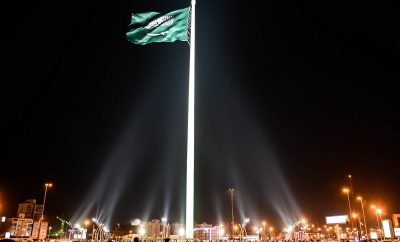 Image courtesy of Sandro Ferrarese; License: (CC BY-ND 2.0)
Image courtesy of Sandro Ferrarese; License: (CC BY-ND 2.0)
World
Saudi Prince: It’s “High Time” Women Should be Allowed to Drive
One of the richest people on earth, Saudi Prince Alwaleed bin Talal bin Abdelaziz Alsaud, published a note on Wednesday urging Saudi Arabia to lift its driving ban on women. “It is high time that Saudi women started driving their cars,” he wrote on his personal website, citing economic, social, religious, and political reasons as to why Saudi Arabia should do away with the highly controversial ban.
Though he is not a member of the government, Alwaleed is highly influential, due in large part to his vast estate. Alwaleed, a billionaire, is the chairman of the Kingdom Holding Company, which invests in Citigroup, Disney, Apple, Twitter, and a handful of other prominent U.S. and European companies. His sentiment is unlikely to directly result in a change in government policy, but in a kingdom where money is power, Alwaleed’s opinion could have an effect.
“Preventing a women from driving a car is today an issue of rights similar to the one that forbade her from receiving an education or having an independent identity,” he wrote in the four-page note. “They are all unjust acts by a traditional society, far more restrictive than what is lawfully allowed by the precepts of religion.”
كفى نقاش:
حان وقت قيادة المرأة للسيارةhttps://t.co/BBgyF8i1Gs
Stop the debate:
Time for women to drivehttps://t.co/6KAniFa4BT
— الوليد بن طلال (@Alwaleed_Talal) November 29, 2016
Saudi Arabia is the only country in the world with a driving ban, which is enforced by religious police. Though it’s not technically illegal for women to drive, they cannot be issued driver’s licenses, which in effect does make driving an illegal activity for women. While women throughout the country have protested the ban, and have been jailed for doing so, Deputy Crown Prince Mohammed bin Salman said in April that he is “not convinced” women should drive.
With some of the harshest restrictions on women in the world, Saudi Arabia recently reached a milestone many countries reached decades ago: as of last December, women in the kingdom can vote and run in local elections.
Another reason to lift the driving ban, Alwaleed contends, is that it would allow the country to “dispense with the services” of the estimated one million foreigners who work in the country as drivers, shuttling women to where they need to be. The average Saudi family spends 3,800 riyal (about $1,000) each month on a driver, he said. Lifting the ban and removing these drivers from the streets, he said, would “lower traffic accidents and decrease the congestion at airports, banks, hospitals, etc., thereby affording better access to a number of services to the Saudi citizenry.”








Comments